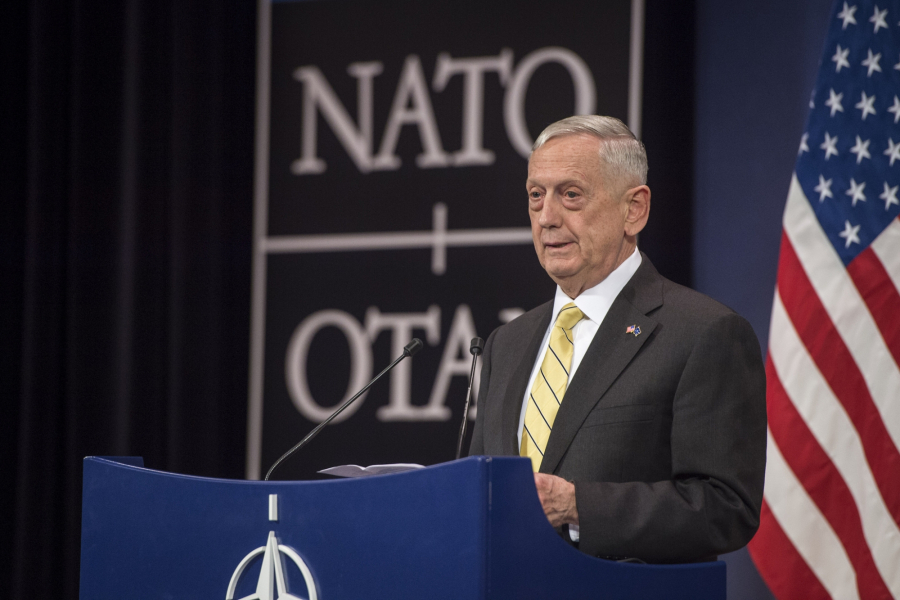The fifth week of Donald Trump's presidency has been defined by immigration acts and the President's repeated clashes with the media. Reince Priebus, the White House Chief of Staff, continues to deny accusations of the President's campaign coordinating with Russia. Trump has maintained his classification of the media as his opponent, and continues to publicly make unverified claims (such as there being a terrorist attack in Sweden over the weekend). Such statements have led to conflicts between the assertions of the President and the assertions of his staff. His Defense Secretary James Mattis, for instance, declared that the media is not, in fact, "the enemy of the American people." Mattis also traveled to Iraq, where he attempted to reassure America's allies that the US is not interested in taking the nation's oil (contrary to what Trump has stated) and that the US remains committed to taking the city of Mosul back from ISIS. Vice President Mike Pence traveled to Europe in order to assure America's partners that, despite what Trump has said, the United States will continue to support NATO.

Making national headlines, Trump refused to admit multiple news outlets to a White House Press briefing. Among those banned include: the New York Times, the Loss Angeles Times, and CNN. Breitbart News, OANN (a conservative network that employs a former Trump campaign manager), and the Washington Times were permitted to attend. Addressing the Republican Party at the annual Conservative Political Action Conference (the most notable national conference for conservative activists and groups), Trump continued to push an anti-globalist plan for the future the United States. Richard Spencer (a white nationalist leader credited with coining the term "alt-right") was removed from the conference. Trump then went on to sign two more memos, which called for the hiring of thousands more immigration officers. These officers will be able to identify and mark for deportation any of the individuals currently living in the United States illegally (estimated to number approximately 11 million) who have been charged with crimes or have a history of criminal activity. In response, a number of Americans living below the border plan to protest Secretary of State Rex Tillerson's Thursday speech in Mexico.

This week has also seen an uptick in the Trump administration rescinding directives from the Obama era. One such directive, constructed to protect transgender students against discrimination, required schools to address students according to their gender identity rather than their biological sex. Another order, drafted with the aim of phasing out the use of private prisons to house federal inmates, was reversed by the Justice Department. As a result of these rapid changes, Trump's followers that may have backed him during the campaign season are becoming more divided. Tom Godat, an Iowan who voted for Trump, stated to the Washington Post, "I didn't think he would come in blazing like he has. It seems almost like a dictatorship at times. He's got a lot of controversial stuff going on and rather than thinking it through." A truck driver, also interviewed by the Post, had a different view, saying: "I have never heard of a president getting scolded or put down for upholding his promises."
- https://www.washingtonpost.com/politics/these-iowans-voted-for-trump-many-of-them-are-already-disappointed/2017/02/26/18f86b86-fa8d-11e6-be05-1a3817ac21a5_story.html?utm_term=.25f0bc18eea9
- http://www.latimes.com/politics/la-pol-trump-week-five-20170221-story.html
- https://newrepublic.com/article/140874/just-happened-review-president-trumps-fifth-week














